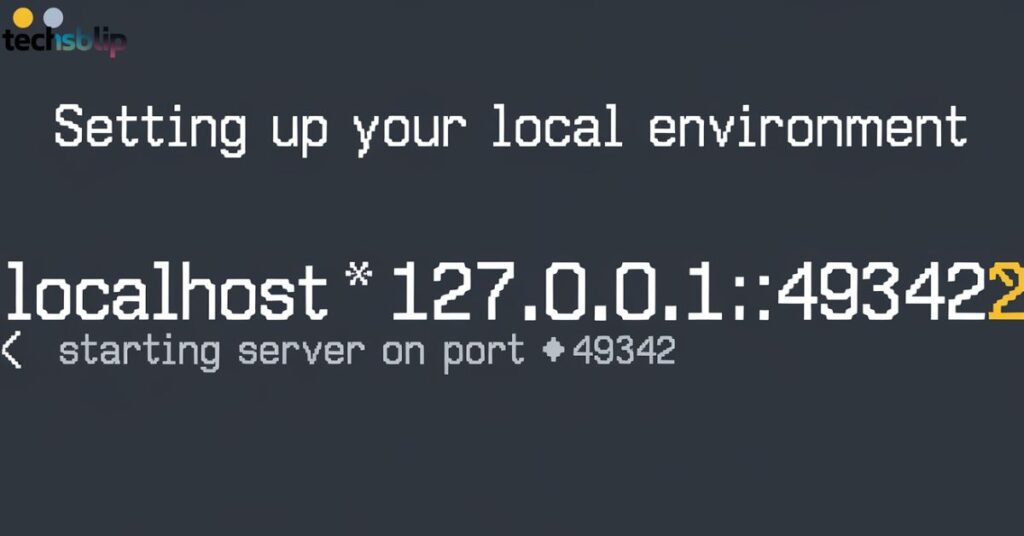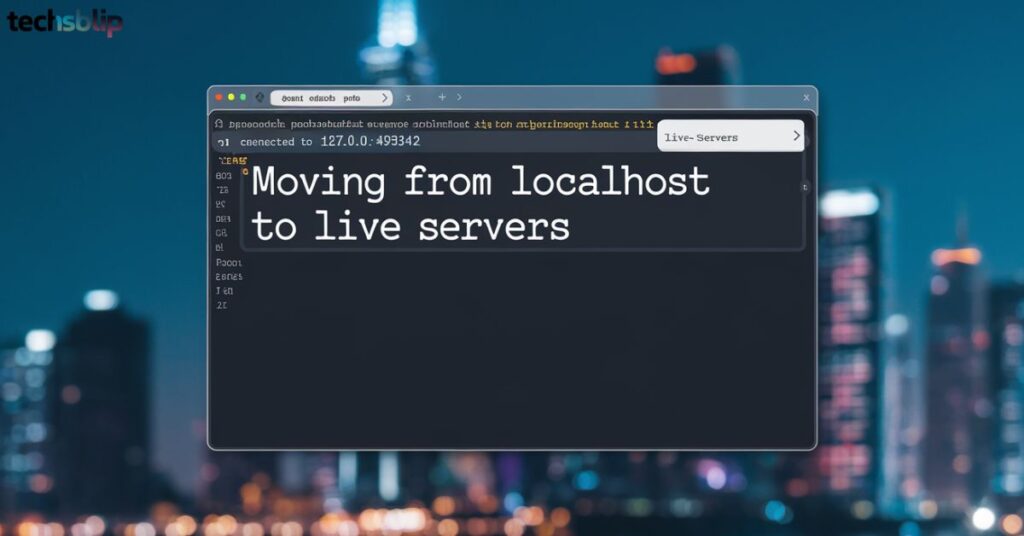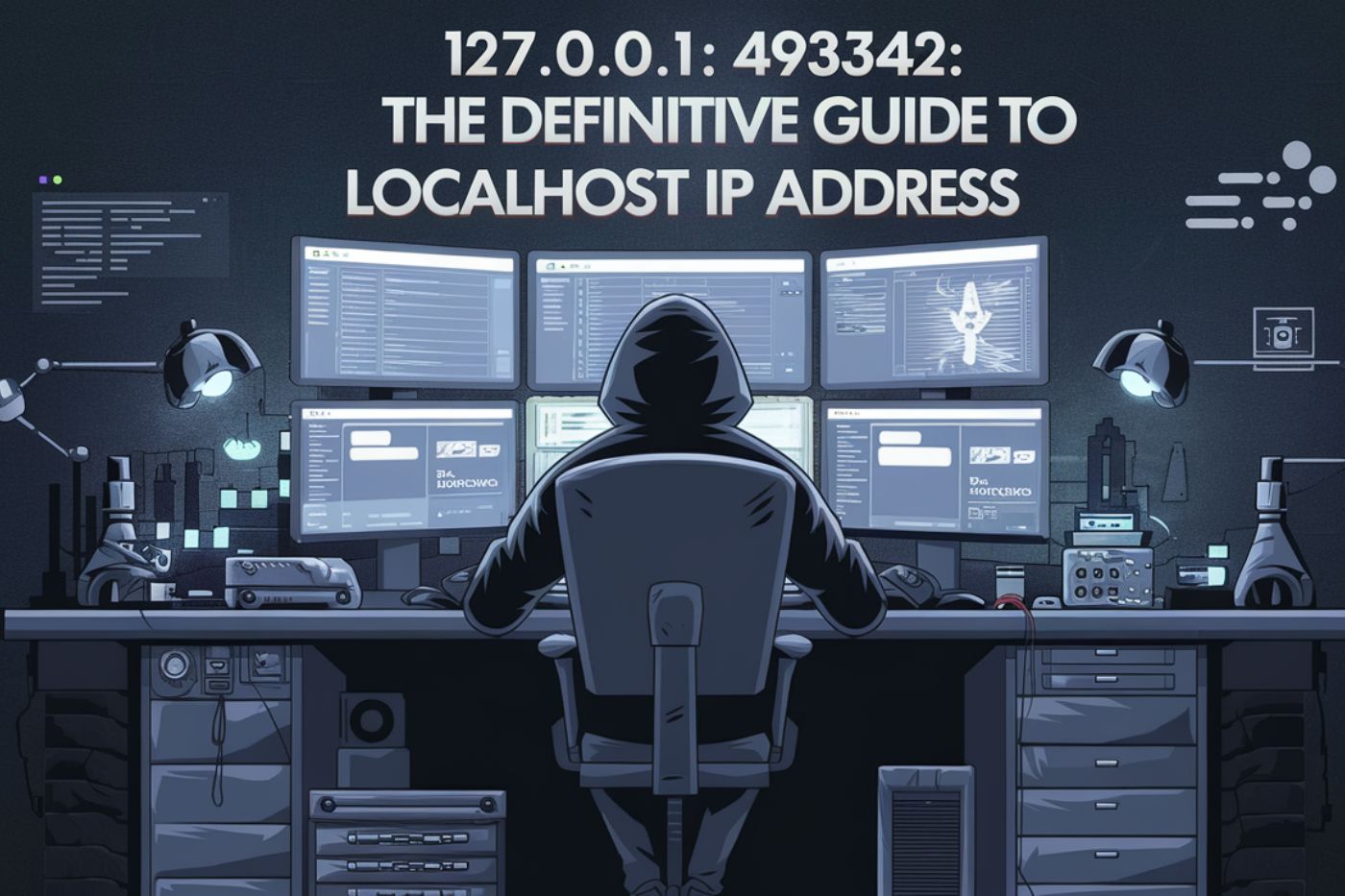The localhost IP address (127.0.0.1:49342) is like your computer’s home phone number. It helps your computer talk to itself. Think of it as a special way for programs on your computer to share information without using the internet.
Ever wondered how developers test their websites before putting them online? They use localhost. It’s a safe space where they can try new things without breaking the real website. This guide will show you everything you need to know about localhost, from the basics to advanced uses.
We’ll explore why localhost 127.0.0.1:49342 matters, how it works, and what you can do with it. You’ll learn about common problems and their fixes. By the end, you’ll understand this important tool that developers use every day.
What is Localhost and Why Does it Matter?
Localhost 127.0.0.1:49342 is your computer’s way of referring to itself. When you type 127.0.0.1 into your browser, you’re telling your computer to look for something on itself rather than the internet. It’s like having a private testing ground where you can work on websites and apps without anyone else seeing them.
The number after the colon (49342) is called a port number. It’s like an apartment number in a big building. Your computer can run many programs at once, and each one needs its own port number. This helps your compuyter know which program should get which information.
Port numbers are super helpful when you’re working on multiple projects. For example, you might have a website running on one port and a database on another. This keeps everything organized and running smoothly on your computer.
How Localhost 127.0.0.1:49342 Works in Simple Terms?
Think of localhost as a mirror that shows your computer what it’s doing. When you send information to localhost 127.0.0.1:49342, it bounces right back to your computer. This is perfect for testing because you don’t need an internet connection. Everything happens right on your machine.
The process starts when you type 127.0.0.1 into your web browser. Your computer sees this special address and knows not to look for it on the internet. Instead, it checks what’s running on your computer at that address and shows you the result.
Ports are like different channels on a TV. Each port can run a different program, and they don’t interfere with each other. When you add :49342 to the address, you’re telling your computer which specific program you want to talk to.
Essential Things to Know About Ports
Understanding ports is crucial when working with localhost.
A computer has thousands of ports available, each serving a different purpose.
- Port 80 is the default for regular websites
- Port 3000 is often used for development servers
- Port 49342 can be used for custom applications
- Ports below 1024 need special permissions
- Some ports are reserved for specific services
Setting Up Your Local Environment

Before you start using localhost, you need to set up your environment properly.
Let’s look at different aspects of the setup process:
Installing Required Software
You’ll need special software to run things on localhost 127.0.0.1:49342. Most developers start with a web server like Apache or Nginx. These programs help your computer act like a real web server. They’re easy to install and come with good instructions.
Configuring Your Ports
Port configuration is important for avoiding conflicts. You should check which ports are already in use on your system. This helps you pick available ports for your projects. Most programs let you change their default ports if needed.
Setting Up Security
Even though localhost 127.0.0.1:49342 is private, good security habits matter. You should use passwords for your local databases. It’s also smart to keep your testing environment separate from your regular computer use.
Managing Multiple Projects
When you work on several projects, good organization helps. Each project should use its own port number. This keeps things neat and prevents confusion about which project is which.
Troubleshooting Common Issues
Sometimes things don’t work right away. Common problems include port conflicts or permission issues. Most issues have simple fixes if you know where to look.
Best Practices for Local Development
Working with localhost requires good habits. You should always test thoroughly before moving to a live server. It’s better to find problems early when they’re easier to fix. Regular backups of your local work prevent losing important changes.
Save your work often when developing locally. Changes on localhost don’t automatically save like they do on some online platforms. Keep track of which ports you’re using for different projects. This makes it easier to find things later.
Good organization makes development smoother. Use clear names for your projects and keep related files together. This helps when you need to find something quickly or share your work with others.
Common Port Numbers and Their Uses
Have a look at a quick reference for commonly used ports in local development:
| Port Number | Common Use |
| 80 | HTTP |
| 443 | HTTPS |
| 3000 | React |
| 8080 | Development |
| 49342 | Custom Apps |
Working with Multiple Services
Local development often means running several services at once. Each service needs its own port number. You might have a website on one port and a database on another. This setup lets you build complex applications on your computer.
Testing how different parts of your application work together is easier on localhost. You can catch problems before they affect real users. This saves time and prevents embarrassing mistakes on live websites.
Everything runs faster on localhost 127.0.0.1:49342 because there’s no internet delay. This makes development quicker and more efficient. You can make changes and see them right away without waiting for servers to update.
Advanced Localhost 127.0.0.1:49342 Features
Running localhost offers many powerful features for developers. Let’s explore some of these capabilities.
Virtual Hosts
Virtual hosts let you run multiple websites on your computer. Each site can have its own settings and files. This is great for testing different versions of your website.
SSL Certificates
You can set up secure connections on localhost. This helps test features that need HTTPS. It’s good practice for working with secure websites.
Custom Domains
Localhost 127.0.0.1:49342 can use fake domain names for testing. This makes development feel more real. It helps catch problems that might happen on real domains.
Read this article: Bed Bug Bites: What You Need to Know – A Complete Guide
Important Security Notes
Local development needs good security practices.
Let’s breakdown what you should know:
- Always use strong passwords
- Keep your software updated
- Don’t expose localhost to the internet
- Back up your work regularly
- Test security features thoroughly
Moving from Localhost to Live Servers

Moving your work from localhost to a real server takes planning. You need to check that everything works the same way online as it does on your computer. This includes testing all features and checking for security issues.
Different settings might be needed online compared to localhost. Things like database connections and file paths often need updates. It’s good to have a checklist of things to change when moving online.
Testing on localhost 127.0.0.1:49342 first saves time and prevents problems. You can fix issues before real users see them. This makes your websites and apps more professional and reliable.
Final Words
Localhost 127.0.0.1:49342 is a powerful tool for web development. It lets you work on projects safely without affecting live websites. Understanding how it works helps you become a better developer.
Using localhost properly makes development easier and safer. You can test new ideas without worrying about breaking things. The skills you learn working with localhost help with bigger projects.
Keep learning and practicing with localhost. It’s an important part of modern web development. The more you use it, the better you’ll understand how websites and applications work.
Frequently Asked Questions
Can other people see my localhost 127.0.0.1:49342 website?
No, localhost is only visible on your computer. Nobody else can see what you’re working on.
What if a port is already in use?
You can choose a different port number. There are thousands of ports available.
Do I need the internet to use localhost?
No, localhost works without an internet connection. It’s all on your computer.
Is localhost 127.0.0.1:49342 secure?
Yes, localhost is very secure because it only runs on your computer.
Can I run multiple projects on localhost?
Yes, you can run many projects using different port numbers.

Ayekiz is a skilled technology author on TechsBlip, committed to providing informative and engaging content that simplifies complex tech concepts. With a passion for promoting digital literacy and online safety, Ayekiz’s writing offers expert analysis, practical tips, and evidence-based information to empower readers in the digital age.

